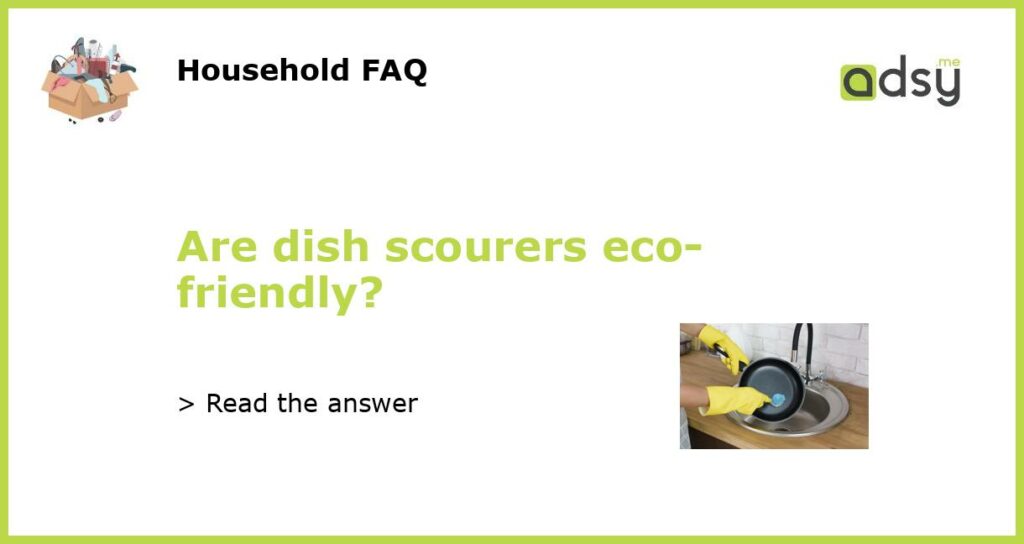What Are Dish Scourers?
Dish scourers, also known as scrubbers, are household cleaning tools used to clean dishes, pots, and pans. Typically made from synthetic fibers, they come in a variety of shapes and sizes and can be abrasive or non-abrasive.
Why the Debate Over Eco-Friendliness?
There is a growing concern among consumers about the environmental impact of everyday products, including dish scourers. The debate over whether dish scourers are eco-friendly centers around their materials, their manufacturing processes, and their disposal.
Synthetic vs. Natural Materials
Most dish scourers are made from synthetic materials like nylon, polyester, and polyurethane. These materials are non-biodegradable and contribute to pollution in landfills. However, some eco-conscious brands have started using natural materials like loofah, coconut fiber, and bamboo as alternatives to synthetic fibers.
Manufacturing Processes and Carbon Footprint
The manufacturing process of dish scourers can also have an impact on their eco-friendliness. Some brands use sustainable practices to minimize their carbon footprint, such as reducing water and energy usage during production. Others use renewable energy sources, like solar power, to power their manufacturing facilities.
Disposal and Recycling
When it comes to disposal, synthetic dish scourers are not recyclable and can take centuries to break down in landfills. On the other hand, natural materials like loofah and coconut fiber are biodegradable and can be composted at home.
The bottom line on the eco-friendliness of dish scourers is that it depends on the specific product and brand. Consumers can look for eco-friendly alternatives made from natural materials and produced using sustainable practices. Additionally, it’s important to properly dispose of dish scourers and consider using reusable dishcloths or scrubbers to reduce waste altogether.






